detail profile kenneth anger
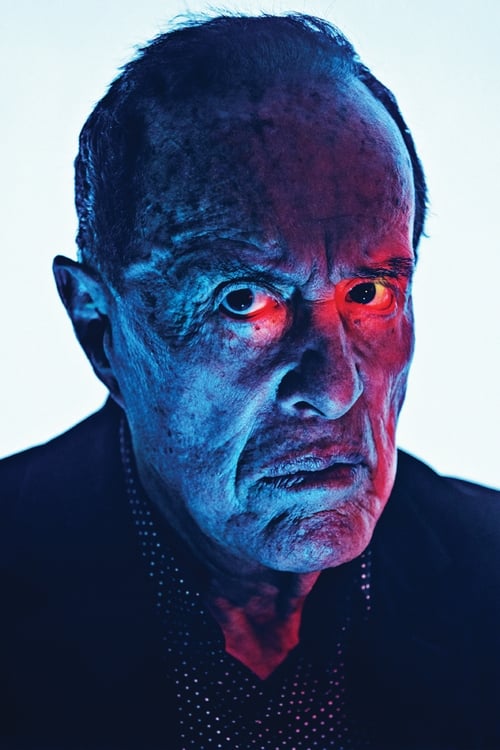
Kenneth Anger
ケネス・アンガー
atau dikenal sebagai
Riwayat Hidup
Kenneth Anger (born Kenneth Wilbur Anglemeyer; February 3, 1927 - May 11, 2023) was an American underground experimental filmmaker, actor and author.
Working exclusively in short films, he produced almost forty works since 1937, nine of which in particular have been grouped together as the "Magick Lantern Cycle," and form the basis of Anger's reputation as one of the most influential independent filmmakers in cinema history.
His films variously merge surrealism with homoeroticism and the occult, and have been described as containing "elements of erotica, documentary, psychodrama, and spectacle.
" Anger himself has been described as "one of America's first openly gay filmmakers, and certainly the first whose work addressed homosexuality in an undisguised, self-implicating manner," and his "role in rendering gay culture visible within American cinema, commercial or otherwise, is impossible to overestimate.
" Some of his particularly homoerotic works, such as Fireworks (1947) and Scorpio Rising (1964), were produced prior to the legalisation of homosexuality in the United States.
He has also focused upon occult themes in many of his films, being fascinated by the notorious English occultist Aleister Crowley, and is a follower of Crowley's religion, Thelema.
This influence is evident from films like Inauguration of the Pleasure Dome (1954), Invocation of My Demon Brother (1969) and Lucifer Rising (1972).
Anger has described filmmakers such as Auguste and Louis Lumière and Georges Méliès as influences, and has been cited as an important influence on later film directors like Martin Scorsese, David Lynch and John Waters.
He has also been described as having "a profound impact on the work of many other filmmakers and artists, as well as on music video as an emergent art form using dream sequence, dance, fantasy, and narrative.
" During the 1960s and 70s he associated and worked with a number of different figures in popular culture and the occult, including Church of Satan founder Anton LaVey, sexologist Alfred Kinsey, artist Jean Cocteau, playwright Tennessee Williams and musicians Mick Jagger, Keith Richards, Jimmy Page and Marianne Faithfull.
He is also the author of the controversial best seller Hollywood Babylon (1959) and its sequel Hollywood Babylon II (1986), in which he claims to expose many of the rumours and secrets of Hollywood celebrities.
Description above from the Wikipedia article Kenneth Anger, licensed under CC-BY-SA, full list of contributors on Wikipedia.
Info Pribadi
Peran Yang Di Mainkan Kenneth Anger
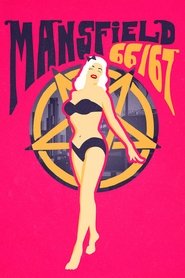 About the last two years of...
About the last two years of...Mansfield 66/67 2017
About the last two years of movie goddess Jayne Mansfield’s life and the speculation swirling around her untimely death being caused by a curse after her alleged romantic dalliance with Anton LaVey, head of the Church of Satan.
 In 1960 Brion Gysin invented the Dream...
In 1960 Brion Gysin invented the Dream...FLicKeR 2009
In 1960, Brion Gysin invented the Dream Machine, a hypnotic light device with the power to induce hallucinations, drugless highs, and revolutionize human consciousness. It looks simple enough; a 100-watt light bulb, a motor, and a rotating cylinder with cutouts. Just sit in front of it, close your eyes, and wait for the visions to come. The Dream Machine enthralled mystics and freethinkers everywhere; Kurt Cobain had a dream machine, and William S. Burroughs thought it could be used to “storm the citadels of enlightenment.” With a custom-made Dream Machine in tow, director Nik Sheehan takes us on a journey into the life of Brion Gysin; his art, his complex ideas, and his friendships with some of the most eccentric counter-cultural icons. Taking the Dream Machine as the basis of its explorations, FLicKeR asks crucial questions about the nature of art and consciousness, and imagines a humanity liberated to explore its creativity in complete freedom.
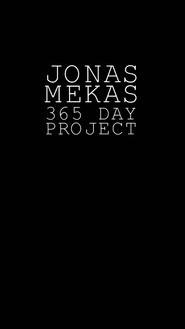 This exhibition focuses on Jonas Mekas 365...
This exhibition focuses on Jonas Mekas 365...365 Day Project 2007
This exhibition focuses on Jonas Mekas’ 365 Day Project, a succession of films and videos in calendar form. Every day as of January 1st, 2007 and for an entire year, as indicated in the title, a large public (the artist's friends, as well as unknowns) were invited to view a diary of short films of various lengths (from one to twenty minutes) on the Internet. A movie was posted each day, adding to the previously posted pieces, resulting altogether in nearly thirty-eight hours of moving images.
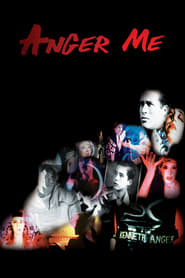 Elio Gelmini interviews Avantgarde filmmaker Kenneth...
Elio Gelmini interviews Avantgarde filmmaker Kenneth...Anger Me 2006
Elio Gelmini interviews Avantgarde filmmaker Kenneth Anger. With archive footage of Angers films, he portrays the filmmaker from his childhood until present day.
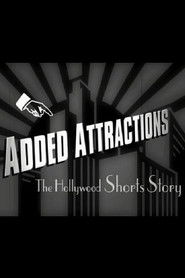 The story of the short film...
The story of the short film...Added Attractions: The Hollywood Shorts Story 2002
The story of the short film from the beginning of the movies in the 1890s, when all movies were shorts, through the 1950s when short subjects virtually disappeared from theaters.
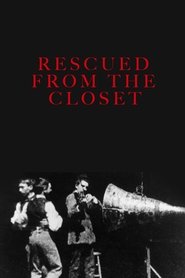 A collection of interviews recorded for...
A collection of interviews recorded for...Rescued from the Closet 2001
A collection of interviews recorded for the making of the 1995 documentary "The Celluloid Closet," on the subject of LGBT representation in film history.
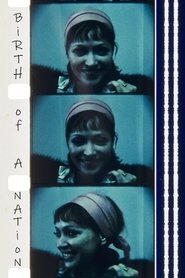 Filmmaker Jonas Mekas films 160 underground film...
Filmmaker Jonas Mekas films 160 underground film...Birth of a Nation 1997
Filmmaker Jonas Mekas films 160 underground film people over four decades.
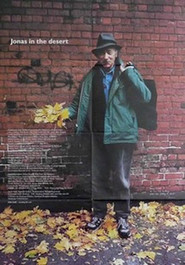 Not a documentary in the strictest...
Not a documentary in the strictest...Jonas in the Desert 1994
Not a documentary in the strictest sense of the word. Rather, it is a journey through the world of the artist Jonas Mekas - one of the exponents of independent U.S. movies; founder and director of the New York Anthology Film Archive.
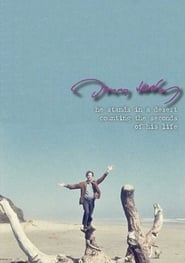 A film collage tracing the story...
A film collage tracing the story...He Stands in a Desert Counting the Seconds of His Life 1986
A film collage tracing the story of the lives, loves, and deaths within the artistic community surrounding Jonas Mekas.
 Documentary portrait of Henri Langlois cofounder...
Documentary portrait of Henri Langlois cofounder...Langlois 1970
Documentary portrait of Henri Langlois, co-founder of the Cinémathèque Française.
 Puce Moment is a short 6 minute...
Puce Moment is a short 6 minute...Puce Moment 1949
Puce Moment is a short 6 minute film by Kenneth Anger, author of the Hollywood Babylon books, filmed in 1949. Puce Moment resulted from the unfinished short film Puce Women. The film opens with a camera watching 1920s style flapper gowns being taken off a dress rack. The dresses are removed and danced off the rack to music. (The original soundtrack was Verdi opera music; in the 1960s, Anger re-released the film with a new psychedelic folk-rock soundtrack performed by Jonathan Halper.) A long-lashed woman, Yvonne Marquis, dresses in the purple puce gown and walks to her vanity to apply perfume. She lies on a chaise lounge which then begins to move around the room and eventually out to a patio. Borzois appear and she prepares to take them for a walk.
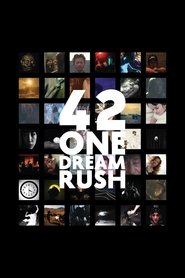 Collection of short films by various...
Collection of short films by various...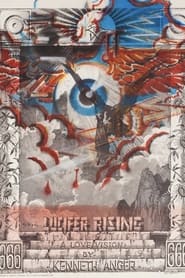 Egyptian gods summon the angel Lucifer...
Egyptian gods summon the angel Lucifer... A gang of Nazi bikers prepares...
A gang of Nazi bikers prepares...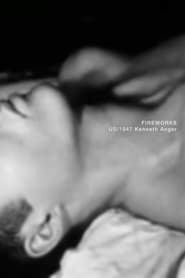 A dissatisfied dreamer awakes goes out...
A dissatisfied dreamer awakes goes out...